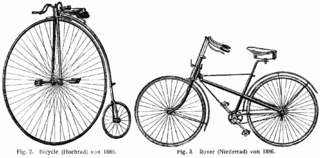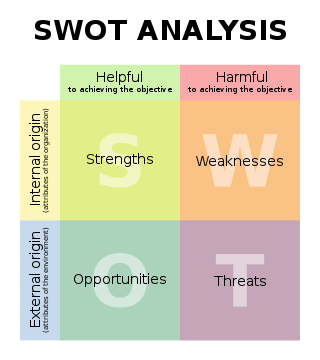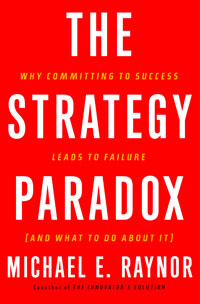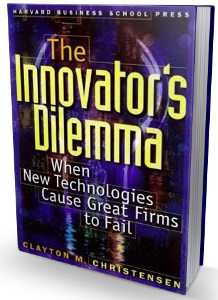External links
- http://www.linkedin.com/in/meraynor
Michael E. Raynor | |
|---|---|
| Born | 28 June 1967 |
| Occupation(s) | Author, researcher, consultant |
| Website | https://amazon.com/author/michaelraynor |
Michael E. Raynor (born June 28, 1967) is a Canadian writer and an expert on business management practices.
Raynor was born in Brantford, Ontario, attended Appleby College in Oakville, Ontario, and holds an undergraduate degree in Philosophy from Harvard College (1990) in Cambridge, MA, where he graduated magna cum laude.
During the course of his undergraduate career he was a Detur Prize winner (first year academic excellence) and a John Harvard Scholar (continued academic excellence). His honors thesis examined the metaphysics of personal identity.
He has an MBA (1994) from the Richard Ivey School of Business in London, Ontario where he was awarded the Nelson M. Davis Memorial Scholarship. He earned his Doctorate in Business Administration (DBA) from the Harvard Business School (2000), where he was a Dively Award winner for research excellence.
Raynor’s first book, co-authored with Clayton M. Christensen, The Innovator's Solution, was a bestseller published in 2003. The primary focus of the book was on creating and sustaining successful growth. Raynor’s second book, The Strategy Paradox ( ISBN 978-0-385-51622-8), was published by Currency/Doubleday in February 2007. . Raynor’s third book, The Innovator’s Manifesto, was published by Crown Business in August 2011. . This book presents specific data and analysis that demonstrates the predictive power of Disruption theory. Raynor's fourth book, The Three Rules: How Exceptional Companies Think, was published by Portfolio in May 2013. Michael E. Raynor and Mumtaz Ahmed analyzed data on more than 25,000 companies spanning forty-five years. Their five-year study began with a sophisticated statistical analysis to identify which companies have truly exceptional performance, 344 in all.

In business theory, disruptive innovation is innovation that creates a new market and value network or enters at the bottom of an existing market and eventually displaces established market-leading firms, products, and alliances. The term, "disruptive innovation" was popularized by the American academic Clayton Christensen and his collaborators beginning in 1995, but the concept had been previously described in Richard N. Foster's book "Innovation: The Attacker's Advantage" and in the paper Strategic Responses to Technological Threats.

Innovation is the practical implementation of ideas that result in the introduction of new goods or services or improvement in offering goods or services. ISO TC 279 in the standard ISO 56000:2020 defines innovation as "a new or changed entity, realizing or redistributing value". Others have different definitions; a common element in the definitions is a focus on newness, improvement, and spread of ideas or technologies.
In the field of management, strategic management involves the formulation and implementation of the major goals and initiatives taken by an organization's managers on behalf of stakeholders, based on consideration of resources and an assessment of the internal and external environments in which the organization operates. Strategic management provides overall direction to an enterprise and involves specifying the organization's objectives, developing policies and plans to achieve those objectives, and then allocating resources to implement the plans. Academics and practicing managers have developed numerous models and frameworks to assist in strategic decision-making in the context of complex environments and competitive dynamics. Strategic management is not static in nature; the models can include a feedback loop to monitor execution and to inform the next round of planning.

SWOT analysis is a strategic planning and strategic management technique used to help a person or organization identify Strengths, Weaknesses, Opportunities, and Threats related to business competition or project planning. It is sometimes called situational assessment or situational analysis. Additional acronyms using the same components include TOWS and WOTS-UP.

Clayton Magleby Christensen was an American academic and business consultant who developed the theory of "disruptive innovation", which has been called the most influential business idea of the early 21st century. Christensen introduced "disruption" in his 1997 book The Innovator's Dilemma, and it led The Economist to term him "the most influential management thinker of his time." He served as the Kim B. Clark Professor of Business Administration at the Harvard Business School (HBS), and was also a leader and writer in the Church of Jesus Christ of Latter-day Saints. He was one of the founders of the Jobs to Be Done development methodology.

Michael Eugene Porter is an American academic known for his theories on economics, business strategy, and social causes. He is the Bishop William Lawrence University Professor at Harvard Business School, and was one of the founders of the consulting firm The Monitor Group and FSG, a social impact consultancy. He is credited for creating Porter's five forces analysis, which is instrumental in business strategy development at present. He is generally regarded as the father of the modern strategy field. He is also regarded as one of the world's most influential thinkers on management and competitiveness as well as one of the most influential business strategists. His work has been recognized by governments, non governmental organizations and universities.

Harvard Business Review (HBR) is a general management magazine published by Harvard Business Publishing, a not-for-profit, independent corporation that is an affiliate of Harvard Business School. HBR is published six times a year and is headquartered in Brighton, Massachusetts.

The Strategy Paradox is a business strategy book by author Michael E. Raynor, who is the Distinguished Fellow with Deloitte Research. The Strategy Paradox was published in 2007 by Currency/Doubleday. It was named a top ten book of 2007 by BusinessWeek, and a top five strategy book of 2007 by Strategy+Business.
Richard A. D'Aveni is an American academic, thought leader, business consultant, bestselling author and the Bakala Professor of Strategy at the Tuck School of Business at Dartmouth College. He is best known for creating a new paradigm in business strategy and coining the term “hypercompetition” which led Fortune to liken him to a modern version of Sun Tzu.
Kenneth Richmond Andrews, was an American academic who, along with H. Igor Ansoff and Alfred D. Chandler, was credited with the foundational role in introducing and popularizing the concept of business strategy.

Rita Gunther McGrath is an American strategic management scholar and professor of management at the Columbia Business School. She is known for her work on strategy, innovation, and entrepreneurship, including the development of discovery-driven planning.
Mark W. Johnson is co-founder and senior partner at Innosight, a growth strategy consulting firm, which he co-founded with Clayton Christensen in 2000.
Outcome-Driven Innovation (ODI) is a strategy and innovation process developed by Anthony W. Ulwick. It is built around the theory that people buy products and services to get jobs done. As people complete these jobs, they have certain measurable outcomes that they are attempting to achieve. It links a company's value creation activities to customer-defined metrics.
Innosight is a strategy consultancy within Huron Consulting Group, advising enterprises on business strategy. Innosight was founded in 2000 by Harvard Business School professor Clayton M. Christensen and senior partner Mark W. Johnson. Innosight uses methods based on the concept of disruptive innovation, a theory defined by Christensen in his book The Innovator's Dilemma. The company headquarters is located in Lexington, MA, with additional offices in Singapore and Switzerland. Scott D. Anthony is the firm's managing partner.

The Innovator's Dilemma: When New Technologies Cause Great Firms to Fail, first published in 1997, is the best-known work of the Harvard professor and businessman Clayton Christensen. It expands on the concept of disruptive technologies, a term he coined in a 1995 article "Disruptive Technologies: Catching the Wave". It describes how large incumbent companies lose market share by listening to their customers and providing what appears to be the highest-value products, but new companies that serve low-value customers with poorly developed technology can improve that technology incrementally until it is good enough to quickly take market share from established business. Christensen recommends that large companies maintain small, nimble divisions that attempt to replicate this phenomenon internally to avoid being blindsided and overtaken by startup competitors.
Creative disruption was introduced in 1992 by TBWA's chairman Jean-Marie Dru. It refers to a radical change in a marketplace brought about by the overturning of existing conventions.
Anthony (Tony) W. Ulwick is the founder and chief executive officer of Strategyn, LLC. an innovation consulting firm based in San Francisco. He is the creator of Outcome-Driven Innovation (ODI).

Management System (Open Source) is a socio-technical system that leverages the cumulative knowledge of management practitioners and evidenced based research from the past 130 years. The system was developed by DoD components in partnership with industry experts and academic researchers and builds off of the US Department of Wars version 1.0 open source management system - Training Within Industry.

Steven J. Spear is a Senior Lecturer at MIT's Sloan School of Management and Senior Fellow at the Institute for Healthcare Improvement. As a Researcher and Author, he is the recipient of the McKinsey Award and five Shingo Prizes. His book, The High Velocity Edge, won both the Shingo Prize for Excellence in Manufacturing Research and Philip Crosby Medal from the American Society for Quality (ASQ).
Efosa Ojomo is a Nigerian author, researcher and speaker. He leads the Global Prosperity research group at the Clayton Christensen Institute for Disruptive Innovation, a think tank based in Boston and Silicon Valley and is a senior research fellow at the Harvard Business School. Efosa speaks regularly on innovation and has presented his work at TED, the Aspen Ideas Festival, the World Bank, Harvard, Yale, Oxford and at several other conferences and institutions. In January 2019, Efosa and Harvard Business School professor, Clayton Christensen published "The Prosperity Paradox: How Innovation Can Lift Nations Out of Poverty".